Environmental Ethics
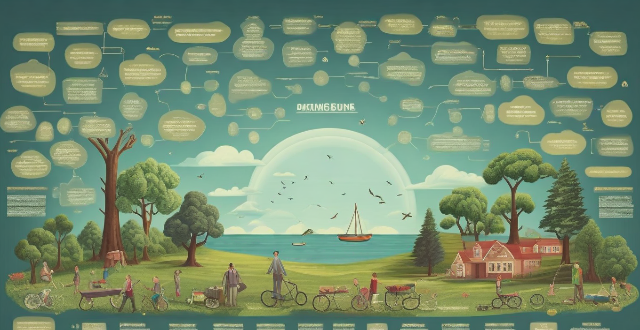
What role does environmental ethics play in sustainable development ?
The text discusses the significance of environmental ethics in sustainable development, emphasizing its role in recognizing the importance of the environment, promoting stewardship and responsibility, encouraging sustainable practices, addressing environmental justice issues, and fostering collaboration and partnerships. It highlights that by understanding the interconnectedness of all life on Earth, we can make more informed decisions about how to use and protect natural resources. The text also points out that environmental ethics promotes the idea of stewardship, which involves taking responsibility for protecting and preserving the environment for future generations. Furthermore, it encourages sustainable practices such as recycling, reducing carbon emissions, and using eco-friendly products to reduce our impact on the environment and contribute to long-term sustainability. Additionally, the text emphasizes the importance of addressing environmental justice issues to ensure fair access to natural resources and protection from environmental harm. Finally, it suggests that environmental ethics fosters collaboration and partnerships between individuals, communities, governments, and businesses to work together towards sustainable development goals.

How can education promote environmental ethics ?
Education is crucial for fostering environmental ethics among students by integrating interdisciplinary approaches, real-world examples, and skill development. Experiential learning through field trips, hands-on projects, and community engagement helps instill a deeper connection with nature. Teaching sustainable practices like reducing waste and conserving energy encourages responsible resource management. Encouraging critical thinking through debates and research assignments enhances understanding of complex environmental issues. Cultivating empathy and responsibility involves promoting nature connectivity and global perspectives. Assessment and reinforcement strategies such as project-based assessments and recognition programs help evaluate and motivate students' commitment to environmental stewardship.

How can environmental ethics be integrated into business practices ?
Integrating environmental ethics into business practices is essential for sustainable development and responsible corporate citizenship. This can be achieved by adopting a sustainability mindset, assessing environmental impact, implementing eco-friendly practices, promoting green innovation, engaging in corporate social responsibility (CSR), complying with regulations and standards, and fostering a culture of continuous improvement. By doing so, companies can mitigate their environmental impact, enhance their reputation, attract socially conscious consumers, and potentially increase profitability through resource efficiency and innovation.

What is climate ethics and why is it important in today's world ?
Climate ethics is a branch of philosophy that examines the ethical implications of human activities contributing to global warming and explores ways to mitigate its effects. It matters because it addresses the fundamental question of how we should live our lives and interact with the environment to ensure a sustainable future for all. Key principles of climate ethics include the precautionary principle, intergenerational solidarity, environmental justice, sustainable development, and common but differentiated responsibilities. By embracing these principles and taking action based on them, we can work towards creating a more just, equitable, and sustainable world for all.

What role do corporations have in upholding climate ethics ?
The text discusses the vital role of corporations in maintaining climate ethics, emphasizing their responsibilities in areas such as emissions control, innovation for sustainability, education and advocacy, stakeholder engagement, and making ethical investment decisions. Corporations are urged to take proactive steps towards reducing direct and supply chain emissions, investing in green technologies, promoting eco-friendly products, raising consumer awareness about environmental issues, influencing policies that support climate ethics, engaging with affected communities, and being transparent about their environmental performance. Additionally, companies should consider green investments and divest from fossil fuel industries to demonstrate a commitment to combating climate change. The essay concludes that corporate actions set standards for others, playing a crucial part in fostering a global approach to climate ethics.

How can environmental ethics influence policy-making ?
Environmental ethics can play a significant role in shaping policies by raising awareness, promoting sustainable practices, encouraging public participation, and influencing international relations.

How can environmental ethics help address climate change ?
Environmental ethics, a branch of philosophy, examines the moral relationship between humans and nature. It helps in addressing climate change by recognizing nature's intrinsic value, promoting stewardship and sustainability, encouraging intergenerational equity, and fostering global cooperation.
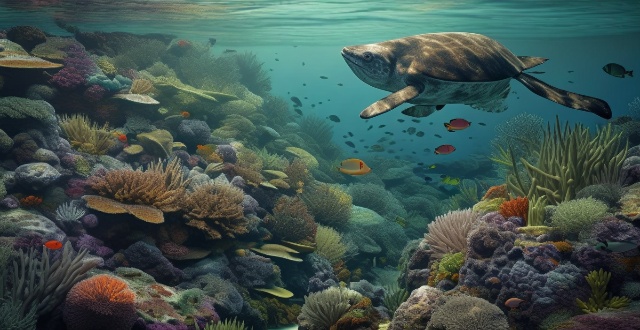
What is environmental ethics and why is it important ?
Environmental ethics, a branch of philosophy, explores the moral relationship between humans and nature. It's crucial for sustainability, biodiversity protection, addressing climate change, enhancing life quality, promoting social justice, encouraging stewardship, informing policy making, raising awareness, stimulating innovation, and fostering global cooperation. This discipline emphasizes our duty to preserve the environment for future generations by considering the long-term implications of our actions.

How does climate ethics relate to the concept of intergenerational justice ?
Climate ethics and intergenerational justice are important concepts that guide us in making decisions that promote a more equitable and sustainable future for all generations. Intergenerational equity, the precautionary principle, and sustainable development are key principles that should be considered when making decisions about resource use and emissions reductions. Governments, businesses, and individuals can all play a role in promoting climate ethics and intergenerational justice by adopting sustainable practices and supporting policies that prioritize climate action.
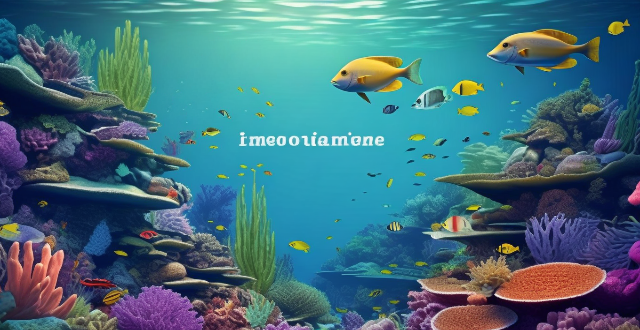
What are the key principles of environmental ethics ?
The text introduces the concept of environmental ethics, which is a branch of philosophy focusing on the moral relationships between humans and the natural environment. It outlines key principles such as respect for nature, sustainability, precautionary principle, intergenerational equity, biodiversity conservation, ethical consumption, ecological justice, holistic thinking, stewardship, and education and awareness. These principles serve as guiding lights in promoting an ethical relationship with the environment, aiming to create a more sustainable and equitable world.

In what ways does academic integrity relate to professional ethics ?
**Academic Integrity and Professional Ethics: An Interconnected Relationship** The concepts of academic integrity and professional ethics are fundamentally interconnected, sharing principles like honesty, fairness, responsibility, respect, and courage. Academic integrity lays the groundwork for professional ethics by instilling foundational skills such as critical thinking, research integrity, and ethical decision-making. These skills transition from academia to profession, building reputations for reliability and trustworthiness. Therefore, promoting academic integrity is crucial not only for the academic community but also for the broader professional world.

In what ways do indigenous communities' rights intersect with climate ethics ?
The text discusses the intersection of indigenous communities' rights and climate ethics, emphasizing the disproportionate impact of climate change on these communities due to their reliance on natural resources and traditional practices. The analysis outlines key points related to land rights, cultural heritage, participatory rights, environmental justice, and responsibility for losses. It argues that recognizing and supporting indigenous rights is crucial for promoting sustainable development and environmental justice, as well as being a moral imperative for effective climate action.

What is the impact of climate change on environmental consciousness ?
Climate change has significantly influenced environmental consciousness, leading to increased awareness, changes in behavior, community action, and a deeper sense of empathy and ethics. This shift is evident in individual lifestyle choices, policy influences, grassroots movements, and global collaborations, all aimed at mitigating the impacts of climate change and fostering a more sustainable future.

What are the benefits of incorporating sustainability practices into schools ?
Incorporating sustainability practices into schools fosters environmental awareness and responsible citizenship among students, offering educational enhancement, positive environmental impact, community engagement, personal development, and long-term societal benefits.
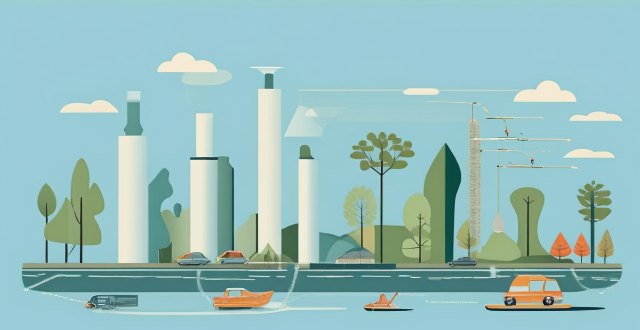
Can you explain the importance of continuous environmental monitoring ?
The article emphasizes the importance of continuous environmental monitoring, which involves regularly collecting data on various environmental factors such as air and water quality, soil conditions, and biodiversity. It helps identify potential issues early on, track long-term changes, support conservation efforts, enhance public awareness, and facilitate research and innovation. The author encourages everyone to stay informed about the state of their local environment and take action to protect it.

Can environmental legislation effectively reduce pollution ?
Environmental legislation has the potential to effectively reduce pollution, but its success depends on various factors such as enforcement and compliance, public awareness and participation, technological innovation, political will, international cooperation, and economic considerations. Strong regulatory bodies, education campaigns, investment in clean technology, government prioritization of environmental protection, global collaboration, and balancing environmental goals with economic development are all crucial for the effectiveness of environmental legislation. Achieving lasting improvements in environmental quality requires ongoing effort from all sectors of society.

What is the role of education in promoting environmental awareness and action ?
Education plays a crucial role in promoting environmental awareness and action by providing knowledge about the environment, developing environmental values, encouraging active engagement, teaching problem-solving skills, and providing opportunities for leadership development.

How does climate leadership differ from traditional forms of leadership ?
Climate leadership is a specialized form of leadership that focuses on addressing the challenges and complexities associated with climate change. It differs from traditional forms of leadership in several key ways, including its scope, urgency, collaborative nature, and long-term perspective. Climate leadership addresses global issues that affect the entire planet and all its inhabitants, while traditional leadership often focuses on organizational goals, profits, or specific projects. Climate leadership operates with a sense of urgency due to the accelerating pace of climate change, while traditional leadership may operate on a more relaxed timeline. Climate leadership emphasizes horizontal integration and networked governance structures, engaging with external stakeholders such as governments, NGOs, and international bodies. In contrast, traditional leadership typically operates within a hierarchical structure where decision-making is centralized. Climate leadership considers the long-term implications of decisions for future generations and prioritizes sustainable practices that balance economic growth with environmental stewardship. Traditional leadership tends to focus on quarterly results or annual performance targets and may prioritize short-term gains over long-term sustainability. Climate leadership encourages innovation and experimentation to find new solutions to complex problems and fosters a learning environment where failure is seen as an opportunity for growth. Traditional leadership may rely on established methods and processes and can be resistant to change if it disrupts current operations. Finally, climate leadership places ethical considerations at the forefront, acknowledging the moral imperative to act and recognizing the interconnectedness of environmental health with social equity and justice. In contrast, traditional leadership is often centered on legal compliance and shareholder value, with ethics being secondary to profitability and efficiency. In summary, climate leadership demands a broader vision, greater urgency, extensive collaboration, a long-term outlook, continual innovation, and a strong ethical foundation. It requires leaders who are not only skilled in their respective fields but also possess a deep understanding of environmental issues and the ability to inspire collective action towards a more sustainable future.

How has environmental legislation evolved over time ?
Environmental legislation has evolved over time, reflecting growing awareness of environmental issues. Early stages focused on preserving natural resources and conserving wildlife habitats, while post-World War II saw a shift towards pollution control through air and water quality regulations. The late 20th century introduced comprehensive environmental protection laws addressing multiple aspects of environmental degradation. Today's legislation prioritizes sustainable development and climate change mitigation, with a focus on public participation and transparency in decision-making processes.
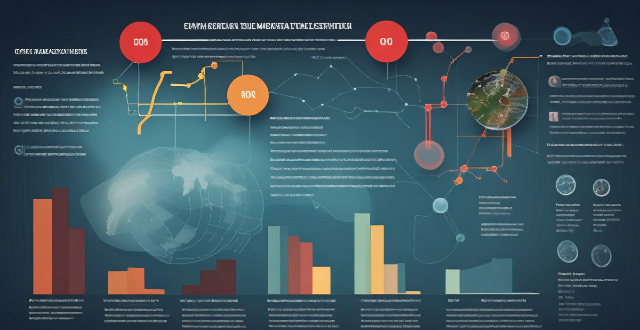
What are some examples of environmental ethical dilemmas ?
Environmental ethical dilemmas encompass a range of issues where choices must balance environmental needs with other interests. These dilemmas include overconsumption and waste, climate change mitigation, wildlife conservation, natural resource management, and genetic engineering. Addressing these challenges involves considering scientific data, ethics, stakeholder perspectives, and potential long-term impacts to make decisions that prioritize both human well-being and the health of the planet.
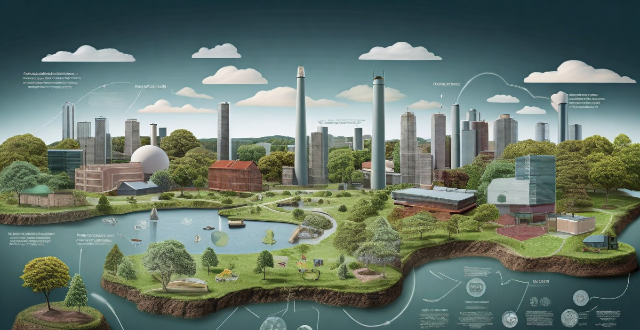
How does environmental degradation affect global ecosystems ?
Environmental degradation affects global ecosystems in various ways, including loss of biodiversity, disruption of ecosystem services, changes in the carbon cycle, and impact on human health. It is crucial to take steps to mitigate environmental degradation and protect our planet's ecosystems for future generations.

Is green technology a sustainable solution for environmental problems ?
Green technology offers a promising pathway towards sustainability, but it's not without its challenges. While it has the potential to significantly mitigate environmental problems, it requires substantial investment, infrastructure development, and policy support to reach its full potential.

Have any celebrities started their own environmental organizations or foundations ?
This text discusses the environmental organizations and foundations founded by celebrities such as Leonardo DiCaprio, Emma Watson, Prince Harry and Meghan Markle, and Jane Goodall. The organizations focus on various environmental causes, including protecting wildlife, combating climate change, promoting sustainability, and addressing social justice issues related to the environment.

How do environmental subsidy policies influence consumer behavior ?
Environmental subsidy policies aim to promote sustainable practices and reduce environmental harm by offering financial incentives. These policies can encourage green consumption, lower the cost of eco-friendly products, and raise awareness about environmental issues. However, they also face challenges such as insufficient incentives, unintended consequences, and limited scope and impact. Therefore, careful design and evaluation are crucial for ensuring their effectiveness in promoting sustainable development.

How does education contribute to raising environmental awareness among future generations ?
Education is crucial for raising environmental awareness among future generations, as it enhances knowledge, develops values, and promotes action. Incorporating environmental education into the curriculum empowers students with the necessary tools to understand and address complex challenges facing our planet. By fostering a deeper appreciation for nature and cultivating a sense of responsibility towards preserving it, schools can play a significant role in nurturing eco-conscious citizens who are well-equipped to confront and overcome environmental challenges.
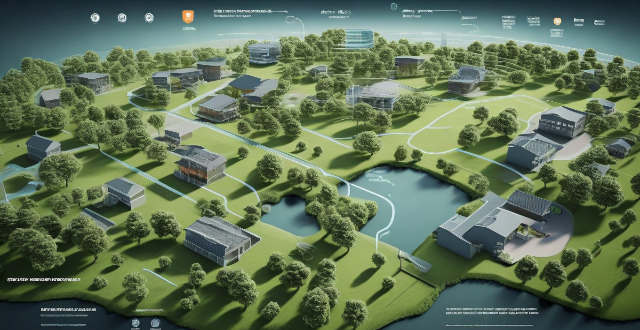
What role does technology play in improving environmental monitoring ?
Technology plays a pivotal role in enhancing environmental monitoring by enabling advanced data collection, analysis, visualization, reporting, and conservation efforts. Satellite imagery, drone surveillance, sensor networks, big data analytics, GIS, real-time reporting systems, and early warning technologies are among the key tools used. These advancements not only improve our understanding of environmental changes but also aid in managing resources and raising public awareness about ecological issues.

How do economic systems contribute to environmental problems and climate change ?
Economic systems, especially capitalism and industrialization, significantly impact the environment by promoting overproduction, waste, and reliance on fossil fuels. Issues such as built-in obsolescence, global trade emissions, and exploitation of natural resources exacerbate environmental problems. Additionally, population growth and urbanization increase consumption, while market failures and regulatory gaps often overlook environmental costs. Addressing these challenges requires a shift in economic priorities towards sustainability.

How can we balance economic growth with environmental sustainability ?
Balancing economic growth with environmental sustainability requires a multifaceted approach that includes promoting green infrastructure and renewable energy, encouraging sustainable business practices, fostering innovation and technology development, educating and engaging stakeholders, and implementing policies and regulations. By taking these steps, we can create a more sustainable future where economic prosperity coexists with environmental well-being. Achieving this balance will require ongoing effort from all sectors of society, including governments, businesses, communities, and individuals alike.

What is the role of individuals in addressing climate change and environmental degradation ?
This article discusses the role of individuals in combating climate change and environmental degradation. It highlights the cumulative impact of individual actions, their potential to inspire others, and the political pressure they can exert. The article provides practical steps individuals can take, such as reducing their carbon footprint, supporting renewable energy, waste reduction and recycling, advocating for environmental policies, and spreading awareness. It emphasizes that collective efforts can make a significant difference in creating a more sustainable future for our planet.

Is it ethical to use genetically modified organisms (GMOs) in agriculture ?
The use of genetically modified organisms (GMOs) in agriculture is a complex and contentious issue that raises ethical questions. Proponents argue that GMOs offer benefits such as increased crop yields, reduced pesticide use, improved nutrient content, and environmental sustainability. Opponents raise concerns about human health risks, economic concentration, environmental impact, and ethical considerations. Key ethical considerations include scientific evidence, public perception, equity and access, environmental stewardship, ethical principles, regulatory oversight, long-term monitoring, global collaboration, innovation and alternatives, and education and awareness.